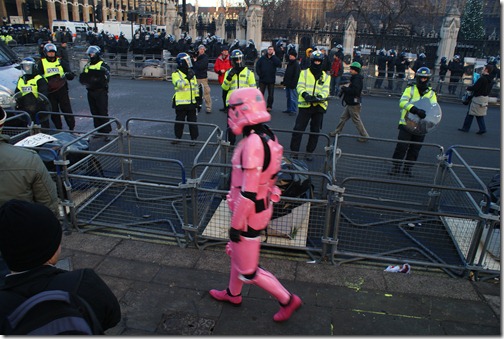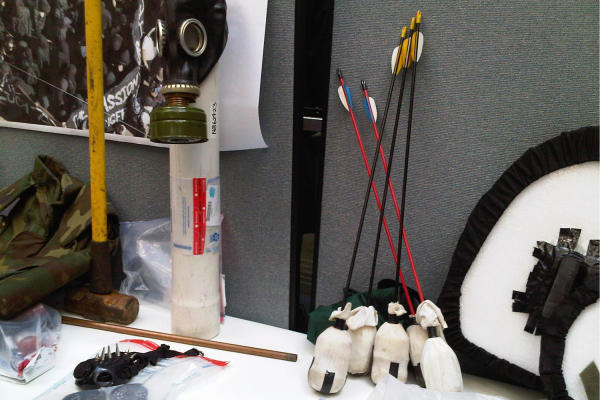
Phil, inbetween hawking his book, makes a good point of the background against which the university occupations take place:
One puzzle about this movement is where it came from: nationwide university occupations don’t come out of a blue sky, do they? One answer would be to refer back to poor old Lefebvre and say that sometimes they do just that. I think also there’s a combative mood that’s been building for a while, smouldering just below the surface. Ironically, it’s been fostered – or at least permitted to continue – by the fact that Labour were in office for so long. New Labour were certainly an authoritarian and pro-business government, but the two elements weren’t combined (as they had been under Thatcher) in a war on “militant left-wingers” and “union bully-boys”. New Labour’s authoritarianism mostly took aim at much softer targets – Islamism and “anti-social behaviour” – in a kind of punitive reinforcement of the social exclusion already suffered by marginalised groups. The result was that a generation forgot the lessons that were drummed into us under Thatcher: “pickets” meant “thugs”, “militants” meant “loonies”, “mass meeting” meant “mob rule”. In short, the taboos against collective action quietly faded away.
Over at Blood and Treasure, Charlie reports on the media response tot he protests:
Radio 4’s narrative this morning was fairly depressing: the whole episode was cast as a failure of policing rather than as a failure of policy (i.e. a failure of politicians to come up with a plan that’ll be broadly accepted). There were barely veiled threats from Boris Johnson and some senior police commander: there might have been plenty of broken student heads, according to Johnson, had the police not been so restrained. The police guy, for his part, said we should all remember that the royal protection officers had guns, and that their mission, when on duty, was to protect ‘the principals’. By the time the end of the interview came around, they’d remembered that the police aren’t supposed to be just the go-to people when you’re looking for some violence against the person, but I sensed it was grudging, especially on Johnson’s part.
And finally, Paul Mason at the BBC reports on who the demonstrators are:
The man in charge of the sound system was from an eco-farm, he told me, and had been trying to play “politically right on reggae”; however a crowd in which the oldest person was maybe seventeen took over the crucial jack plug, inserted it into aBlackberry, (iPhones are out for this demographic) and pumped out the dubstep.
Young men, mainly black, grabbed each other around the head and formed a surging dance to the digital beat lit, as the light failed, by the distinctly analog light of a bench they had set on fire.
Any idea that you are dealing with Lacan-reading hipsters from Spitalfields on this demo is mistaken.
Vox pop segments on the main six oçlock BBC news and the local Londonversion yesterday also showcased some self identified kids from the hoods, or at least the estates; Ben Goldacred might’ve thought them inarticulate, but to me they made perfect sense. It’s not just the jacking up of tuition fees that worries them, but also the scrapping of the EMA. It shows that contrary to mainstream spin, this is not a middleclass issue.
